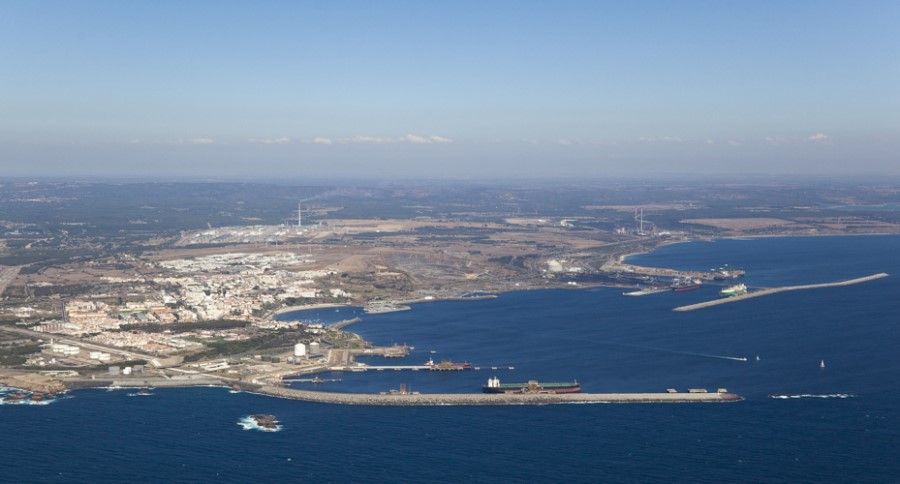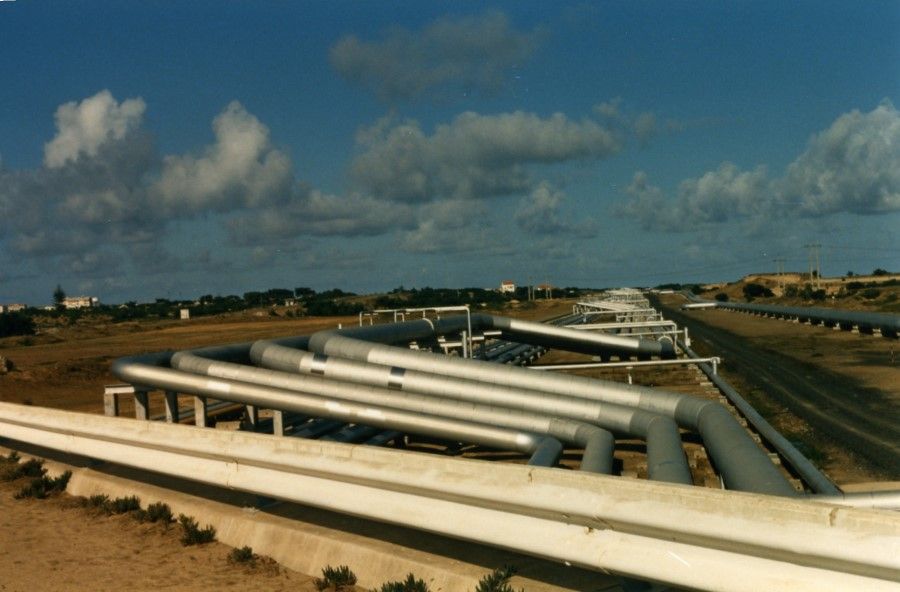Washington threatening Portugal to choose between China and the US?

Portugal prides itself in being the first European nation to establish a permanent trading post in China when it founded Macau in 1557. Returning it to China only in 1999, the Portuguese proudly say that they are "the first in China and the last to leave".
In the past decade or so, it is China that has come to Portugal, and in a big way. When the 2008 financial crisis caused the Portuguese economy to crash, Chinese investors began to invest in Portugal heavily. Lisbon was eager to attract foreign investment to save its state-owned companies in strategic sectors such as water, power and telecommunications and China was well-placed to provide it.
Chinese investment flows into Portugal
In 2011, China Three Gorges (CTG) bought a 21% stake in EDP, Portugal's state-owned power company, for 2.7 billion euros. In 2012, CTG invested a further 359 million euros by acquiring 49% of EDP's subsidiary EDP Renewables. In the same year, China State Grid bought a 25% stake in REN, another Portuguese state-owned power company, for 397 million euros.
Portugal was cash-strapped and desperate for investment while China had huge reserves of capital looking for new markets.

Chinese companies have also invested heavily in Portugal's struggling financial sector. Fosun International bought a 27% stake in Millennium Bank, Portugal's largest bank, for 1.2 billion euros. In 2014, Fosun bought Fidelidade, the country's largest insurance company, for one billion euros.
In the same year, Fosun invested a further 460 million euros when it bought Luz Saude, Portugal's largest health care provider. In 2018, China was the biggest investor in Portugal with over 10 billion euros in investment.
Both nations seemed quite satisfied with the course of their relations which they hailed as mutually beneficial. Portugal was cash-strapped and desperate for investment while China had huge reserves of capital looking for new markets.
American Eagle looks on warily
Portugal is an old American ally, a founding member of NATO and has hosted a US air base for decades. Initially, Washington did not pay much attention to Beijing's growing presence in Portugal. However, the election of Donald Trump in 2016 changed this. As tensions between the US and China degenerated into a full-fledged commercial war, Washington began to grow more critical of Lisbon's close ties with China.
"Portugal must choose between the United States or China." - US ambassador to Portugal George Glass
Matters came to a head when in 2020 Portugal accepted a Chinese proposal to modernise and expand the port of Sines, the country's most important harbour. Under the Belt and Road Initiative (BRI) China proposed a 640 million euro container terminal at Sines to transform it into a major shipping hub between Europe and the Americas. Unfortunately for small Portugal, the Chinese proposal angered the Americans.

In no uncertain terms, the US ambassador to Portugal George Glass told the Portuguese government that Lisbon needed to rethink its relations with Beijing. In an interview with Expresso newspaper in September 2020, Ambassador Glass criticised Portugal for allowing Chinese investment in strategic sectors such as telecommunications and power.
The US ambassador warned of serious consequences for the two countries' security relations if Huawei was allowed to enter the country's 5G market. Saving his toughest criticism for the possibility of Chinese investment in the Sines port, Glass warned: "Portugal must choose between the United States or China."
Portugal's Sines port: Singapore of the West?
In recent years the port of Sines has been growing in importance for the US. Sines is the closest point in Europe to the US east coast. The US plans to build a major natural gas terminal at Sines. The US is a major producer of natural gas and intends to use Sines to export it to its European Union allies.
The liquefied natural gas (LNG) would be sold to the EU via pipelines linking various countries to Sines. This would open a large market for US LNG and diminish the dependence of EU members on Russian gas. Ambassador Glass said that the American alternative project would transform Portugal into the Singapore of the West.
The Portuguese authorities pushed back at Glass' comments and denounce American meddling in the internal affairs of a sovereign country. Lisbon stated that it remained a firm ally of the US and that its ties with China are based on economic interests.

Portugal would most certainly prefer to have both the American and Chinese projects at Sines. China does not seem to have any objections to such a possibility. However, Washington has made clear that Lisbon must choose. The new Biden administration, while having a more polite posture, is unlikely to change this stance.
The case of Portugal shows that when unable to compete with China on the economic front, the US would not hesitate to use threats.
US sticks won't work
As tensions between China and the US escalate, small countries, even old American allies, will increasingly come under pressure to choose sides. While the US may have some legitimate concerns over Chinese investment in Portugal's 5G network, its criticism of other Chinese investments is controversial, if not dubious.
China invested in Portugal at a time when no one was willing to do so. Unfortunately, Portugal has been caught between two giants. Whatever choice it makes will have profound consequences.
The case of Portugal shows that when unable to compete with China on the economic front, the US would not hesitate to use threats. From Panama to Portugal, this tactic is becoming more common. However, sticks alone are unlikely to work. Washington needs to offer more carrots.
This essay first appeared in RSIS Commentary, a publication of the S. Rajaratnam School of International Studies (RSIS), Nanyang Technological University (NTU), Singapore as "Portugal: Stuck Between Two Giants" by Loro Horta.
